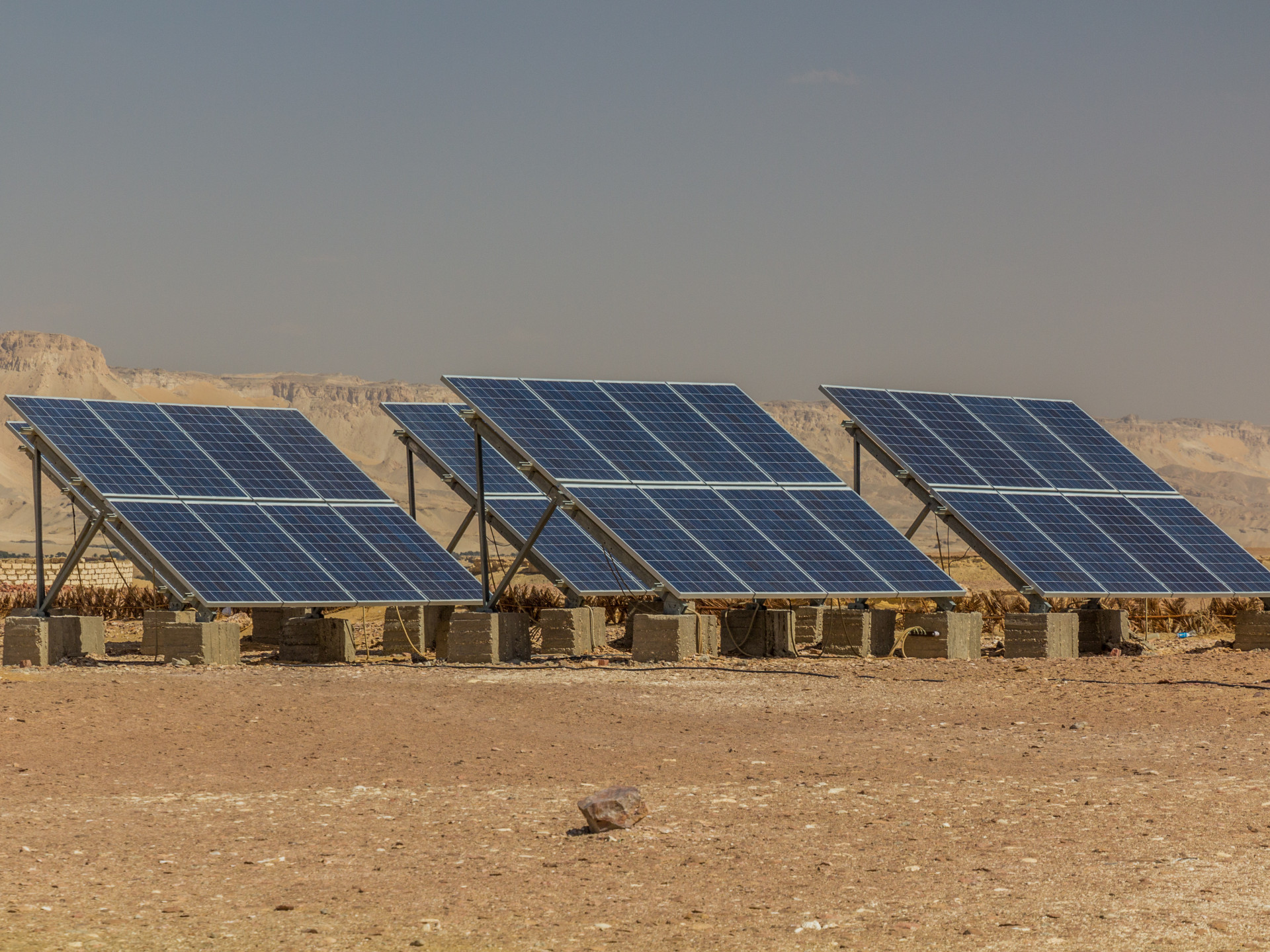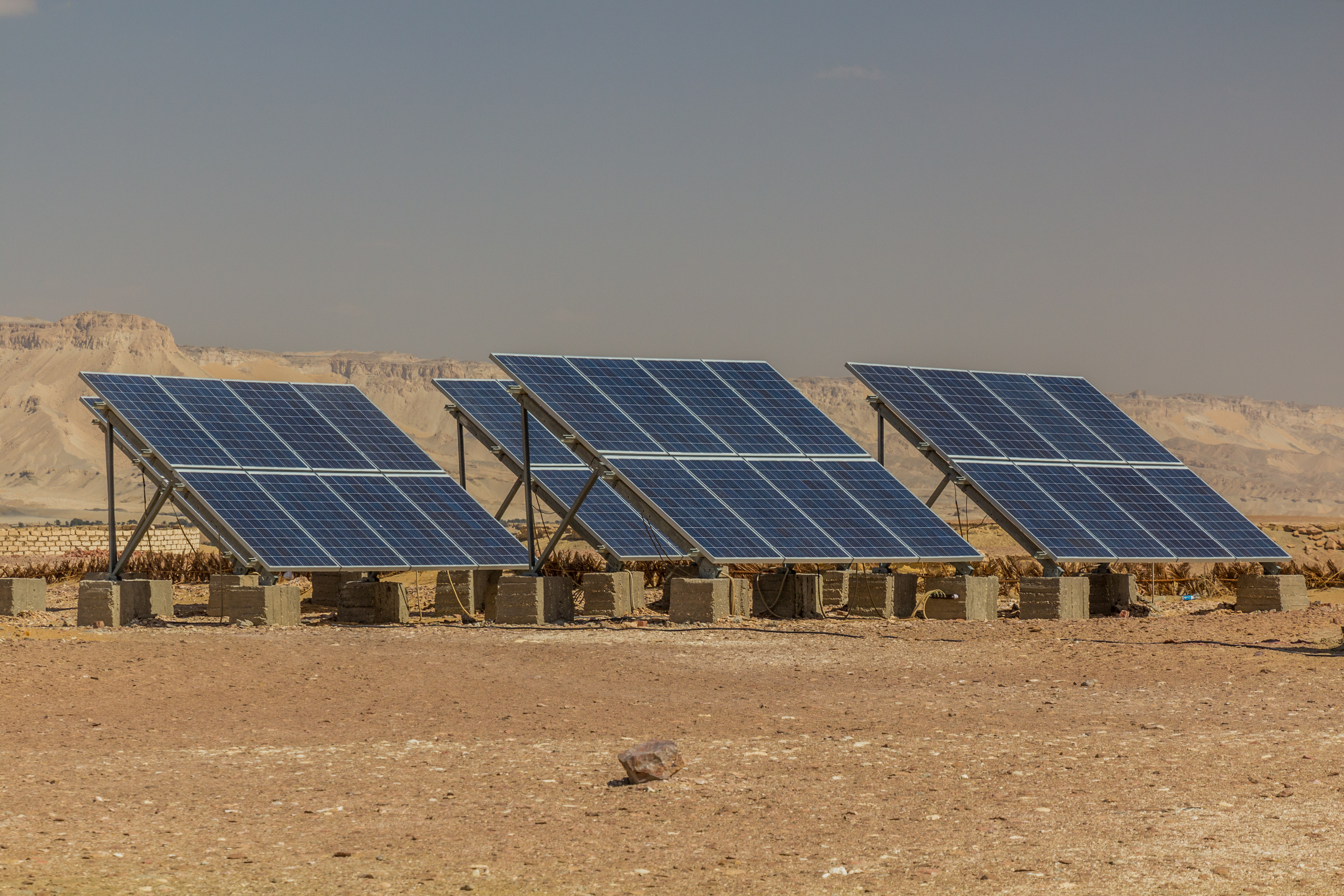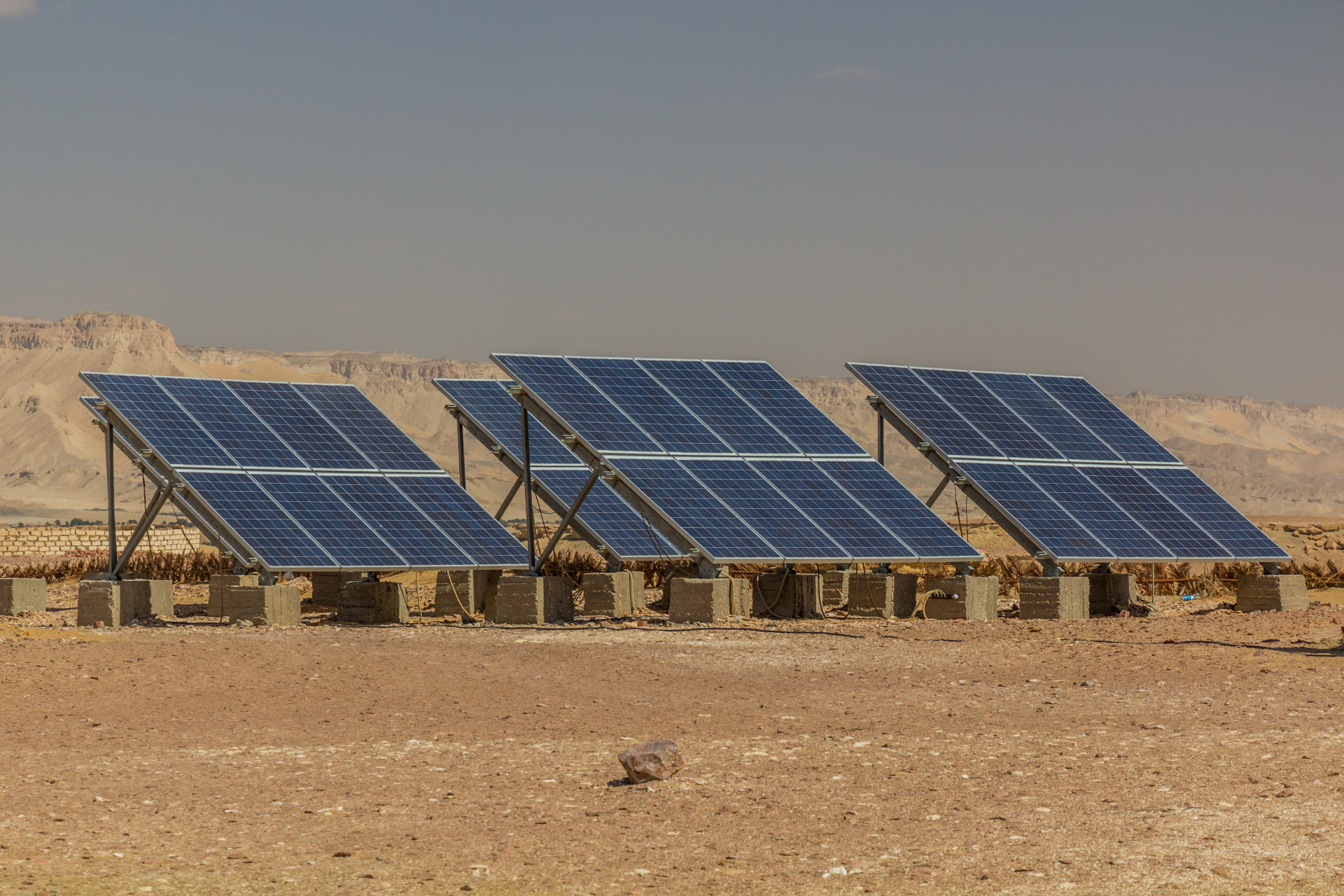Tipping point less favorable to climate action


The results of the 27th UN Climate Change Conference (COP27) have been overwhelmingly criticized as weak and vague. That said, the negotiators did demand that the development banks mobilize greater amounts of money for climate action. Absent any resolutions on the causes of global warming, this was perhaps the most important decision rendered – in conjunction with the aid to counteract climate-related damage.
“Multilateral diplomacy continues to prove its merits – despite the difficulties and challenges of our age,“ said Sameh Shoukry, President of the 27th UN Climate Change Conference (COP27) and Egyptian Foreign minister, upon the conclusion of the conference in the Sharm el-Sheikh resort. Beforehand, at around 4 a.m. in the early hours of Sunday morning, he struck his ceremonial gavel in adoption of the final communique. And despite the adverse geopolitical circumstances – "historical" new input was passed with this gavel strike: The countries resolved to create a fund that supports poor countries financially to cope with the losses and harms caused by global warming – an appropriate outcome for a year that saw droughts in East Africa and floods in Pakistan and Nigeria wreak enormous damage to cite a few examples.
The small island countries have been requesting this fund for 30 years now, a fund that the USA as well as the EU had rejected until just recently. Development State Secretary Jochen Flasbarth at the German Ministry for Economic Cooperation and Development described the new fund as the "biggest developmental policy success in the history of climate negotiations" and doubled down on claiming this as a success for the EU: “COP27 was a geopolitical pivot point: In terms of climate risks affecting the poorest and most vulnerable, Europe took a clear stance with the USA reluctantly concurring. As the largest emitter of climate gases, China continues to take the unequivocal position of refusing to accept their own responsibility.“
Above all, the fund has symbolic meaning
This concurrence was enabled by postponing the decision as to who will pay into the fund until next year. No wonder that Wendel Trio of the environmental organization Greenpeace says that the creation of the fund is primarily “of a symbolic nature, but it was still the symbol that the developing nations wanted to see.“ With regard to the fund’s capitalization, the industrialized countries demanded that the relatively affluent developing countries with high emissions also contribute funds. Yet, they reject this proposal, citing the fact that the 30-year-old UN climate convention singles out the "industrialized countries" to be financially accountable. So, a committee for the fund has been tasked with “identifying financial sources“ by the next COP to be convened in the United Arab Emirates. Thereby, it is guaranteed that the differentiation between "industrialized and developing countries" will be the issue dominating that upcoming COP.
The second key result: For the first time, the final communique states that a "transformation of the financial system" is now on the agenda to fund the necessary investments in renewable energies. International financial institutions like the World Bank and the International Monetary Fund (IMF) are being called upon to deploy their "full suite of instruments." That might include the creation of IMF special drawing rights (SDR), sort of like, but not truly a currency. The IMF can scoop these international reserve assets "out of nothing," which is what it actually did last time to support the countries in coping with the COVID crisis: In August 2021, the IMF provided SDR valued at 650 billion dollars and distributed them to the 190 member countries. The Prime Minister of Barbados, Mia Mottley, now wants to apply this money to the climate crisis as well.
She is demanding the creation of a fund that is capitalized with SDR to the tune of 500 billion dollars. That would give the fund optimal creditworthiness, an AAA rating, thus allowing it to offer attractive loans. A total of 5,000 billion dollars are planned to be mobilized in this way and invested in the expansion of renewable energy sources in developing countries. One huge advantage of this idea is that it can be implemented fast. As early as next April at the IMF / World Bank Spring Meetings, the IMF member countries could resolve to pass Mottley’s idea. Mohamed Adow of the environmental organization Power Shift Africa justifiably called these financial resolutions the "biggest take-away from COP27 that’s flying under the radar." He hopes that this decision will contribute to "lowering the risk of investments, make capital affordable and free up billions in climate funding."
Failure on the topic “fossil energy resources“
By contrast, the COP27 outcome is disappointing for the energy system, whose need for reform is much more apparent. One recurring failure should be noted, namely that "fossil energy resources" are not mentioned in the final text despite demands by a broad coalition comprising the likes of India, the USA and the EU and even the island countries. Singularly, the countries set up a “working program” that envisions holding two workshops next year. However, the results of these workshops have been expressly disallowed to become new "targets" – like the findings of the Intergovernmental Panel on Climate Change (IPCC) that the emissions have to be reduced starting in 2025.
That’s one reason why Christoph Bals of the environmental organization Germanwatch accuses the Egyptians of promoting the "interests of Saudi Arabia, the Gulf States along with those of China." In part, the conduct of the negotiation can be blamed for this. Professor Reimund Schwarze of the Helmholtz Centre for Environmental Research expressed the opinion that it left a lot to be desired: “In my almost 20 years of monitoring these negotiations, I have before never witnessed such a weak presidency. The Egyptians did a poor job of preparing this COP. During the conference, the guiding decisions were untransparent, ad hoc and authoritarian.“
Alongside the very mixed outcome in terms of the “big“ issues, there were indeed noteworthy new inputs on several smaller issues which have been fought over for years: For the first time, the final communique mentions the “right to a clean, healthy and sustainable environment.“ Another novel item is the subchapter on forests. Food is mentioned six different times, clearly giving this issue more weight than previously. Moreover, it is now officially acknowledged that not only technical solutions but also "nature-based” ones are needed. Such solutions were not mentioned at all at last year's Glasgow Pact. In the end, a reference to “tipping points“ has at last been included in the final text – albeit in terms of glaciers and not in terms of a breakthrough for climate protection.


